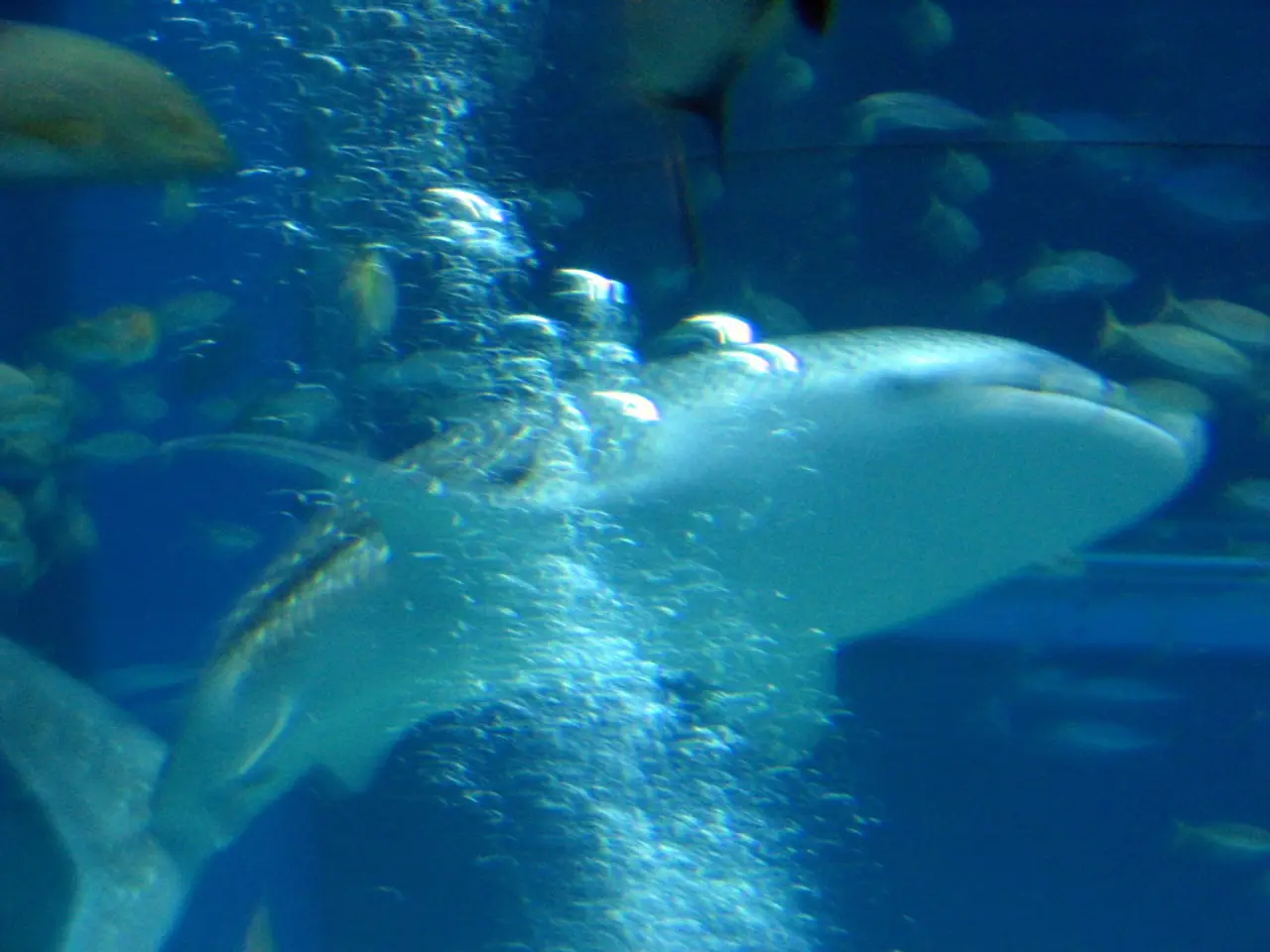Shark Specialist with Decades of Experience Claims Public Fear is Misplaced Regarding Attacks
In a recent report by the International Shark Attack File (ISAF), the number of unprovoked shark bites worldwide has decreased, with 47 incidents recorded in 2024, marking the lowest tally in nearly three decades [1]. This drop in shark attacks is a positive sign for beachgoers and aquatic enthusiasts alike.
According to the ISAF, the United States recorded 7 shark attacks in 2025, with incidents spread across states such as Florida, Hawaii, and South Carolina [3]. Despite these incidents, the odds of being killed by a shark in the U.S. remain approximately 1 in 4.3 million, while globally, the figure drops to about 1 in 28 million [2]. To put this into perspective, other risks such as dying from fireworks are more common; the risk of a shark-related death is cited as less than 1 in 4 million [4].
Key risk areas, or "hotspots," for shark bites are Florida’s Atlantic coast, Australia, Hawaii, South Africa, and Brazil. However, even in these hotspots, the risk remains low relative to the number of people engaging in water activities. For example, New Smyrna Beach in Florida, known as the "shark-bite capital," has recorded around 300 bites since the late 1800s despite millions of surf sessions each year [2].
Factors increasing bite risk include baiting, feeding, spearfishing, or trying to touch sharks. Most encounters are minor, typically involving surfers or body-boarders, while swimmers and divers face lower risks [1][2]. Drowning and other water-related risks are significantly more common causes of injury or death than shark attacks [3].
Common-sense precautions, such as avoiding swimming at dawn or dusk, using caution when between sandbars and steep drop-offs, avoiding murky water, not swimming alone or far offshore, and removing shiny jewelry that mimics fish scales, can further reduce the already tiny risk of a shark bite.
In Cape Cod, a white shark hotspot, encounters with sharks that fall into the unprovoked category involve animals that are usually juveniles figuring out how to hunt. Since 2012, Cape Cod has logged only three bites, one of which was fatal, all involving juvenile white sharks [5].
It's important to remember that sharks play a crucial role in ocean ecosystems, keeping prey populations in check and oceans healthy. The practice of killing sharks for fins, meat, or accidental capture in nets has led to population declines for some species, such as oceanic whitetips, hammerheads, and several reef sharks.
In summary, while shark attacks are dramatic and receive media attention, the actual risk to humans remains extremely low compared to many other everyday hazards [1][2][3][4]. By taking common-sense precautions and understanding the real risks, we can continue to enjoy the ocean safely and responsibly.
References: [1] International Shark Attack File (ISAF) [2] National Geographic [3] Centers for Disease Control and Prevention (CDC) [4] U.S. Consumer Product Safety Commission (CPSC) [5] Massachusetts Division of Marine Fisheries (MDMF)
- Ecologists studying the earth's diverse biology could benefit from researching the behavior of sharks, considering their importance in maintaining ocean health and ecosystem balance.
- The science community continues to explore various aspects of animal life, including sharks, to gain a better understanding of their roles and interactions within the ecosystem, which could impact earth's overall health.
- As we prioritize protecting endangered species like sharks, it's essential to remember that their health is interconnected with the health of our planet's ecosystems, emphasizing the significance of their conservation efforts in the realm of environmental ecology.
- In the realm of sports, various forms of swimming and water activities have gained popularity around the globe. By understanding and taking common-sense precautions when engaging in these activities near shark hotspots, athletes can minimize any potential risks of shark encounters, thus ensuring a safer and more enjoyable experience for all.








